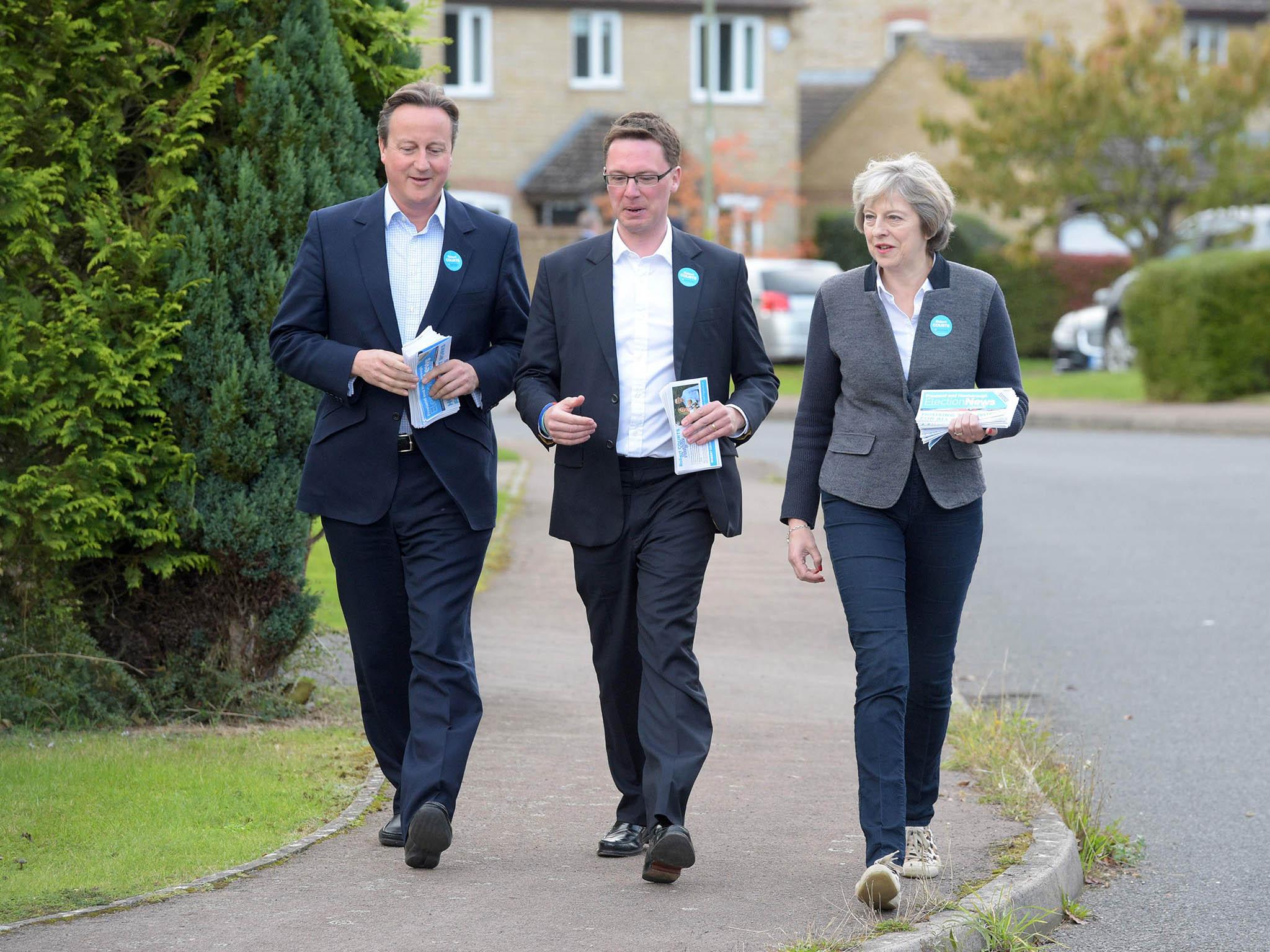The Lib Dems did well to fight back in Witney – but don’t assume it’s because of their anti-Brexit stance
A huge swing to the Liberal Democrats in the Witney by-election means the natural order is restored – Ukip has been displaced as the protest party


Your support helps us to tell the story
From reproductive rights to climate change to Big Tech, The Independent is on the ground when the story is developing. Whether it's investigating the financials of Elon Musk's pro-Trump PAC or producing our latest documentary, 'The A Word', which shines a light on the American women fighting for reproductive rights, we know how important it is to parse out the facts from the messaging.
At such a critical moment in US history, we need reporters on the ground. Your donation allows us to keep sending journalists to speak to both sides of the story.
The Independent is trusted by Americans across the entire political spectrum. And unlike many other quality news outlets, we choose not to lock Americans out of our reporting and analysis with paywalls. We believe quality journalism should be available to everyone, paid for by those who can afford it.
Your support makes all the difference.Congratulations to Whatshername, the Liberal Democrat in the Witney by-election, who came second. This is a huge improvement on fourth, which is where the Lib Dem came in David Cameron’s seat in the general election.
Liz Leffman achieved a 19-point swing to leapfrog Labour and Ukip and to ensure the morning’s headlines were “Conservatives returned with greatly reduced majority”.
The Lib Dem Fightback, as it is called on social media, is real. In local council by-elections since June, the party has been gaining seats, mostly at the Tories’ expense. Yesterday’s by-election is the first real test, and Tim Farron has passed it. He threw everything the party had at the by-election, visiting five times himself and cranking up the party’s fabled but slightly rusty by-election machine.
The natural order of British politics 1958-2010 is restored: the Liberals are the protest party once again. From Mark Bonham Carter’s victory in the Torrington by-election until Nick Clegg went into coalition with the Conservatives, it was a law of the uncodified British constitution that the Liberals and then the Liberal Democrats should do very well in by-elections.
After 2010 the Lib Dems were displaced as the natural party of protest by Ukip, but that hiatus has ended now. Ukip, having achieved its objective on 23 June, is suddenly an ex-party, reduced to brawling in Strasbourg.
But it would be foolish to read much more into the Witney result. In particular, the claim that it was “a vote against hard Brexit” is unconvincing. If you add up the Lib Dem, Labour and Green votes, it is said, you get 49 per cent, 0.2 points more than the combined Conservative and Ukip vote.
And Witney is one of the prosperous southern constituencies in which a majority voted Remain in the referendum. All the same, the idea that its voters went to the polls yesterday to express a view on the balance between restricting free movement of people and access to the EU single market is implausible.
Witney takes us back to a familiar pattern. The Government is not popular – although Theresa May herself is still basking in the benefit of the doubt of the fair-minded British electorate. The official opposition is uninspiring outside the tight confines of its true believers. And the Lib Dems are the receptacle of votes against the two main parties, protest votes which owe almost nothing to Lib Dem policies let alone to the party’s liberal values.
A 19-point swing is big, but the Lib Dems are cursed by their long history of even more sensational by-election results: this is only their sixth-best swing and they didn’t even come close to winning the seat.
As in 1958, they are starting from a low base (in the 1955 election they won 3 per cent of the national vote; last year they won 8 per cent). This week’s Ipsos MORI poll was the first to put them ahead of Ukip nationally – by just 7 per cent to 6 per cent – which was more to do with Ukip’s deflation than any Lib Dem surge.
But the party is back as an organised force in English local council and parliamentary by-elections. If Ukip continues to subside, the Lib Dems will be back as the third party of English, and the fourth party of Scottish, politics.
Witney by-election result
Conservative Robert Courts 17,313 45.0% -15.2
Liberal Democrat Liz Leffman 11,611 30.2% +23.5
Labour Duncan Enright 5,765 15.0% -2.2
Green Larry Sanders 1,363 3.5% -1.5
Ukip Kendrick “Dickie” Bird 1,354 3.5% -5.6
Nine other candidates 1,049 2.8%
(Change since 2015 general election.)
Join our commenting forum
Join thought-provoking conversations, follow other Independent readers and see their replies
Comments